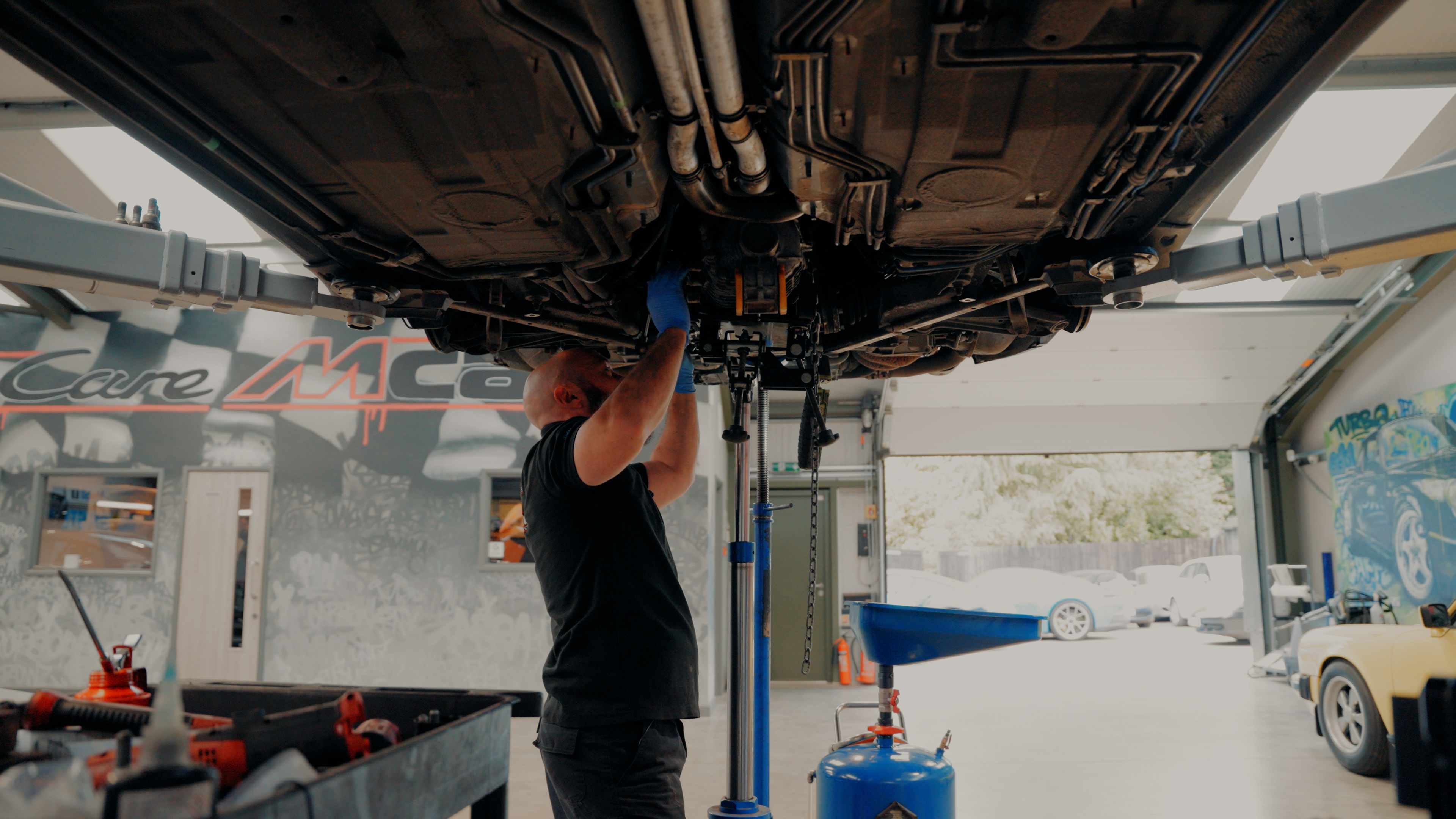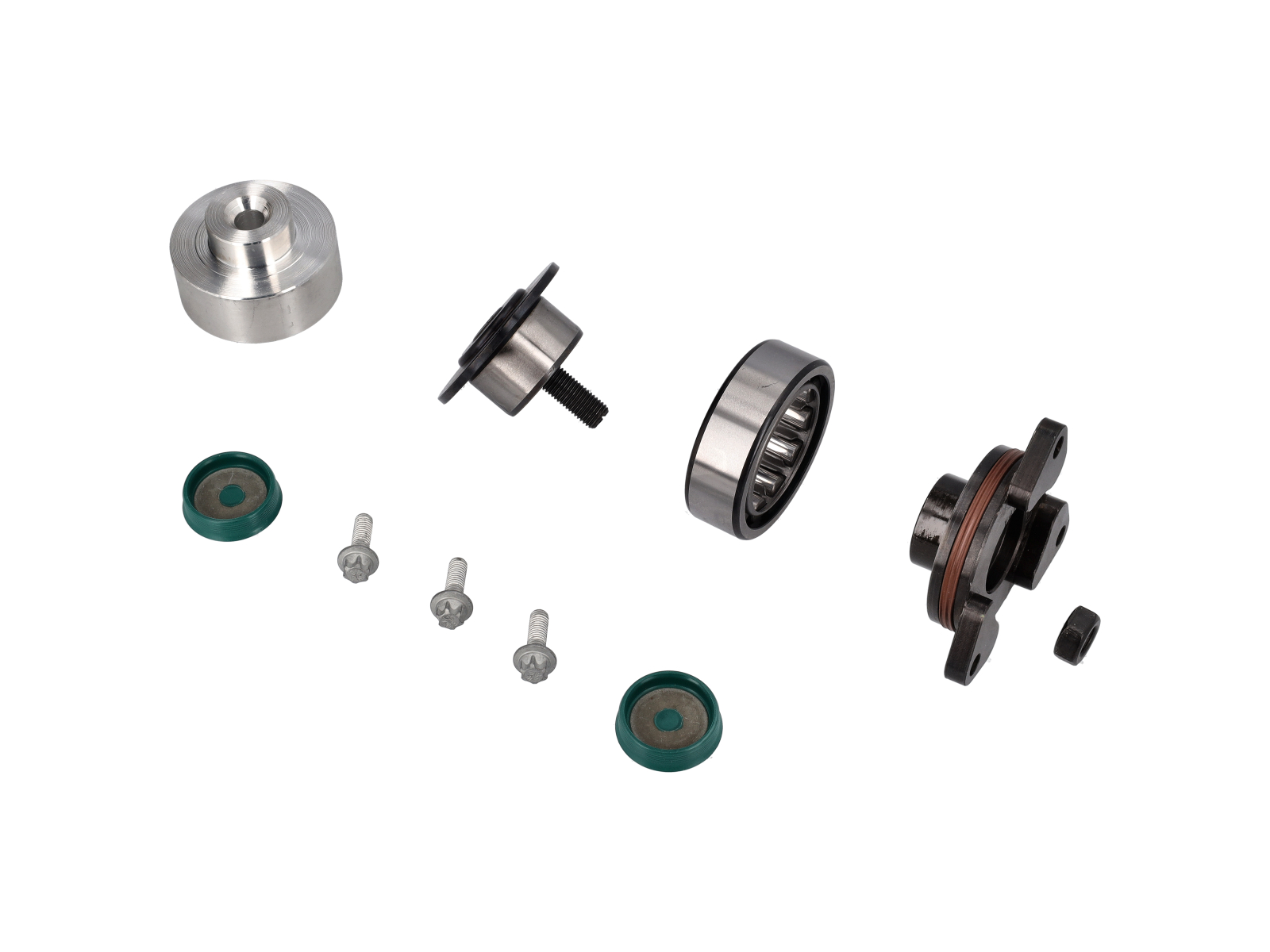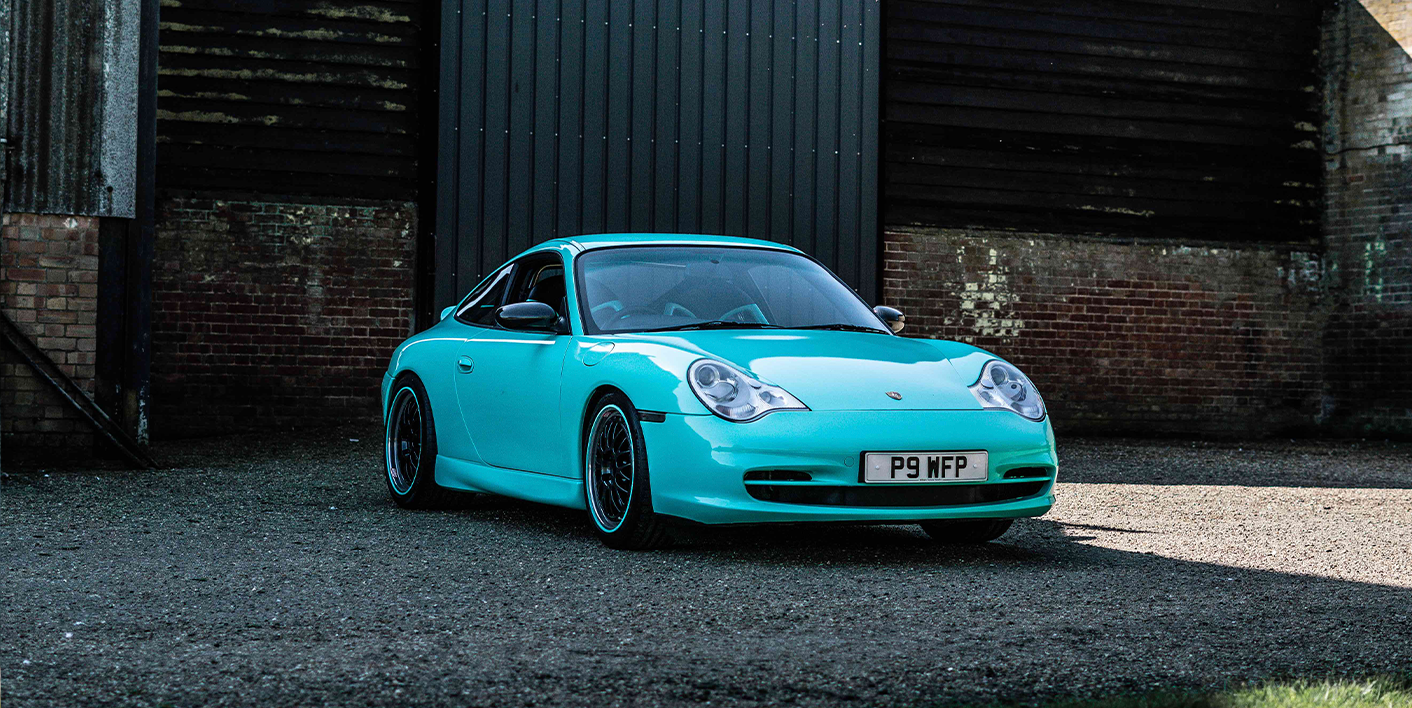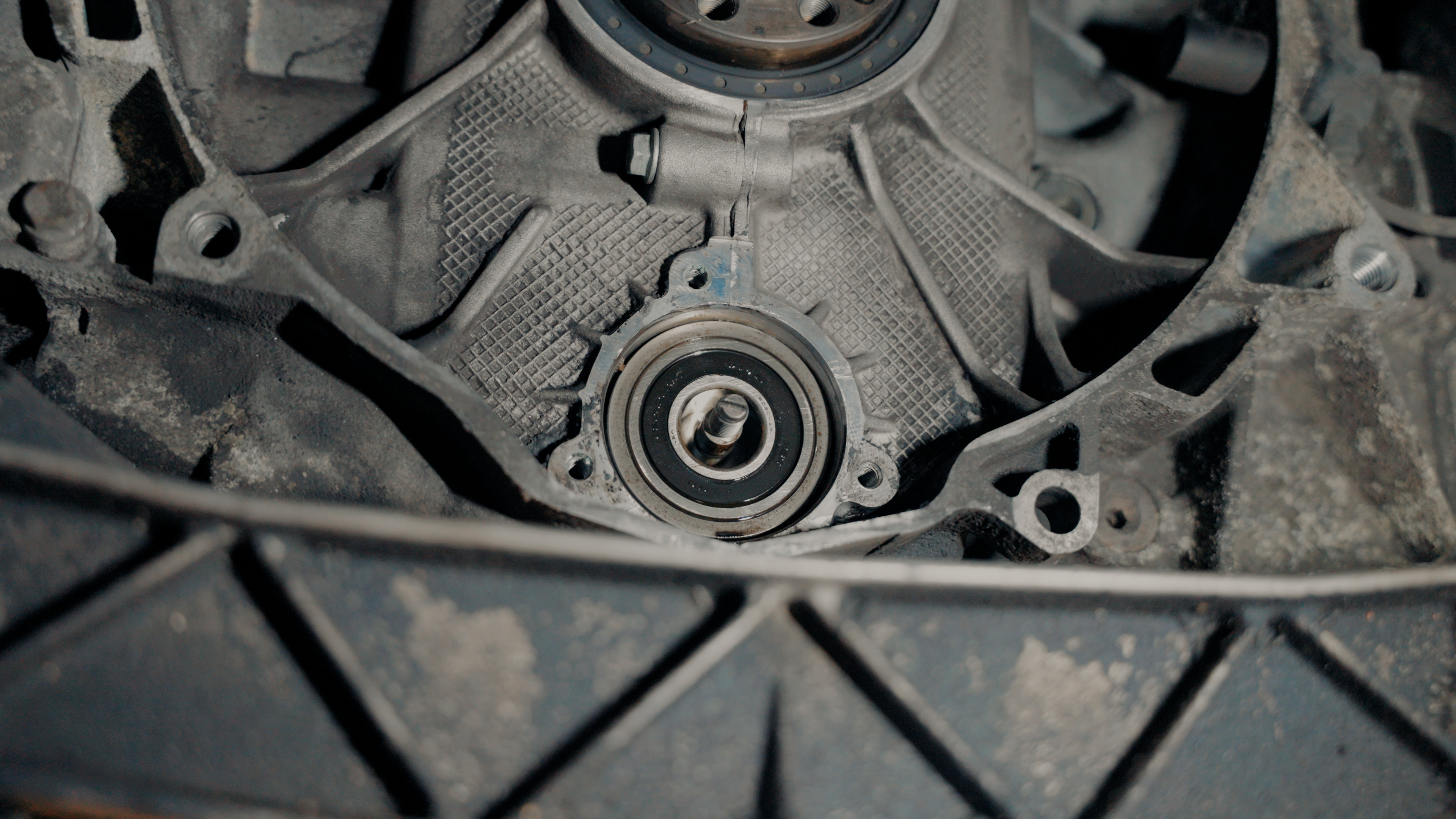
Your Porsche IMS Bearing: The Need-to-Knows
For the Porsche owner, the phrases ‘IMS bearing failure’ and ‘spalling’ are the cue for eye-rolling, hand-wringing, and ‘replacement cost’ are not far behind. A raid on the ISA or other form of nest egg feels inevitable. But it’s not inevitable.
Could I be affected by IMS bearing failure?
There’s no getting away from it – IMS bearing failure isn’t good news. Looking beyond simple replacement cost, the collateral damage can be immense. But if you know what you’re looking for, and act in time, a failing Porsche IMS bearing failure isn’t a dealbreaker either. Luckily, your friends at Design 911 can help. So, here’s the inside track on Porsche IMS bearing replacement.
If you don’t drive a 986 Boxster, a 987 Cayman, a 996 (but not the GT or Turbo), a 997 3.6ltr packing an earlier M96/05, then you’re free to go. If you’re not sure, read on, or ask an expert.
Let’s talk engines.
Specifically, the M96. It’s the powerplant driving every 996 Carrera model and the basic Boxster. This mill replaced the legendary air-cooled, two-valve, single-overhead-camshaft flat-six synonymous with the 911.
First introduced in 1996, the first incarnation of the M96 was the 2.5L flat 6. A year later, it took a bow in the 911 as a 3.4L flat 6, and a further displacement increased the capacity to 3.6L. Water-cooled, it was therefore not instantly popular with the Porsche purists, who prefer a naturally aspirated mill.
Like Dylan going electric, it annoyed some but for in-house engineers, the M96 and latter M97 were the strategic change up that would power the next gen Porsche 996, the 911, and the 997. It was more powerful, generating around 296 BHP, cheaper to make and easier to maintain.
No engine design is perfect, especially the first time around, and owners reported rear main seal leaks and cylinder cracking in early M96s. But that’s another story. In this article, we’ll look at Porsche IMS bearing replacement.
What is the IMS and what does it do?
- IMS stands for ‘Intermediate Shaft’ and it sits on the flywheel end of the motor, supported by the sealed, Porsche-issue bearing.
- The shaft drives the camshafts indirectly off the main crankshaft; having a ‘proxy’ cam reduces chain speeds, prolonging chain life.
- Porsche chose a ball bearing for the IMS bearing because it could manage axial and thrust loads evenly.
- Roller bearings are often paired with a ball bearing in Porsche gearboxes to supply thrust control.
- But roller bearings alone can typically only manage a thrust load in one direction, and only 10% of total load capacity as thrust, while it’s 50% capacity for the ball bearing.
However, while the Porsche IMS bearing was supposed to last for the lifetime of the engine – there’s no part number, or suggested servicing interval – it may not.
Fun fact: Every model from 2006 and beyond, and the later Porsche 911 997, Boxster, and Cayman models are fitted with Porsche IMS bearings that can only be replaced with complete engine disassembly.
What happens if your IMS bearing fails?
Nothing good. The engine damage from a loose cam can be catastrophic and cost thousands in repair bills. So much money, in fact, IMS replacement costs and associated damage prompted a large – and successful – class action lawsuit in the States.
The Porsche IMS bearing is not something to be ignored. Make no mistake, it’s officially a ‘wear’ item and replacement is inevitable. It’s that or your engine. There’s always a choice.
So, what’s the cause?
There isn’t a single factor behind IMS bearing failure – more a confluence of issues. Spalling, where the metal simply fails over time because of fatigue on the races or rolling elements, is just one. IMS bearing fatigue can also be accelerated by too high a load or too little lubrication.
Why does that happen?
The design of the roller ball bearing enables this premature wear, and movement causes oils to wash away the grease in the sealed bearing and each inevitable fracture leaves a jagged ‘pit’.
Too many and your IMS bearing is no more – and can take your engine with it. There’s simply too much metal debris for a straight like-for-like IMS bearing replacement. You’re looking at a stripdown, a rebuild, or a new plant.
It’s a gradual process – not a ‘fine one day, gone the next’ scenario – so know what to look for and act fast. It can be the difference between pre-emptive Porsche IMS bearing replacement, and retrospective M96 or M97 engine refurbishment.
What should I look out for?
- Early detection beats sober reflection. If you’re in the danger bracket – Boxters, Caymans and 911s from MY1999 to MY2008 – then change your oil outside the Porsche schedule.
- When you do, look for shards of black plastic and metallic parts in the oil filter pleats and/or used oil.
- These are fragments of shredded IMS bearings. A magnetic sump plug will pick up metal particles from the bottom of the engine. (There are other benefits, too.)
- Similarly, the plastic may have come from the bearing seal. That’s the time to hand the keys to an expert for a full inspection. We suggest PorscheXperts.
Which IMS do I need?
There was a size switchover in 2005. Our handy guide, below, will help.
- M96 3.6L engines, up to number 69507475 and the 3.8L, M97s up to engine number 68509790 will have the smaller IMS bearing. Get it here.
- M96 engines from number 69507476 and the 3.8L M97s from engine number 68509791 will have the larger IMS bearing.
- If your engine is being worked on, you’ll need our open bearing. If not, ask for our closed engine bearing.
Note: closed bearing replacement requires the use of a boring tool. It’s available for sale or rent from Design 911.
As discussed, neither cylindrical roller bearings nor ball bearings are suitable, in the long term, for carrying large axial – or thrust – loads as the limited surface contact area on the roller sides can be compromised and the results are not good.
Is there an ‘eternal’ fix?
Yes, there is. Let’s talk about our IMS Bearing Upgrade Eternal Fix -62mm flange.
What is it?
Our patented EPS system uses a 15mm cylindrical bearing with thrust control that allows for separation between the axial and radial loads. It works for your Porsche Boxster 987, Cayman 987, and 997 (2005-8) M97 engines, among many other specs. While it’s incompatible with the M96, it works with many M97s. Here’s a full list.
How does it work?
A cylindrical IMS bearing doesn’t carry the axis load on the side but spread across the entire permitter of the outer race, so the roller only carries the main, radial load.
That means a load bearing capacity up to five times higher than the ball bearing equivalent.
Equally, a flat, not concave surface can carry extreme lateral pressure without wearing out the friction-facing surfaces.
That’s why cylindrical bearings suit high temperature, low viscosity lubrication situations, such as automatic transmissions.
Is it any good?
It’s guaranteed to be good. Added without engine disassembly, cylindrical bearings have more than 12 times the load capacity of ball bearing equivalents.
Consequently, the bearing is not overloaded and will last the lifetime of the engine. Manufacturers EPS recommends using this product in conjunction with a replacement oil seal and the rear main #8 seal and housing assembly.
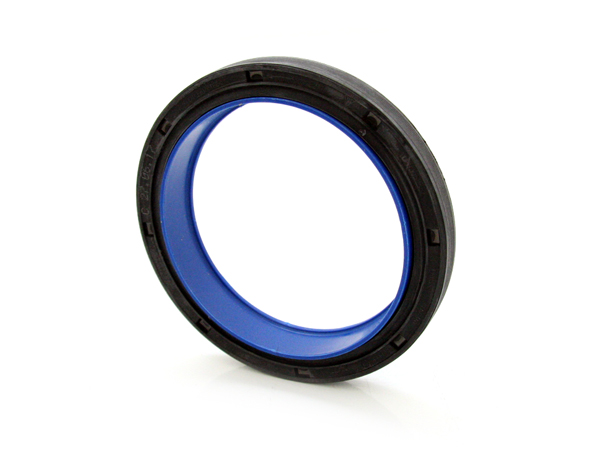
REAR MAIN OIL SEAL. PORSCHE BOXSTER 986 / BOXSTER 987 / CAYMAN 987C / 997 MKII / 957 CAYENNE/ 970 PANAMERA – 0PB105249
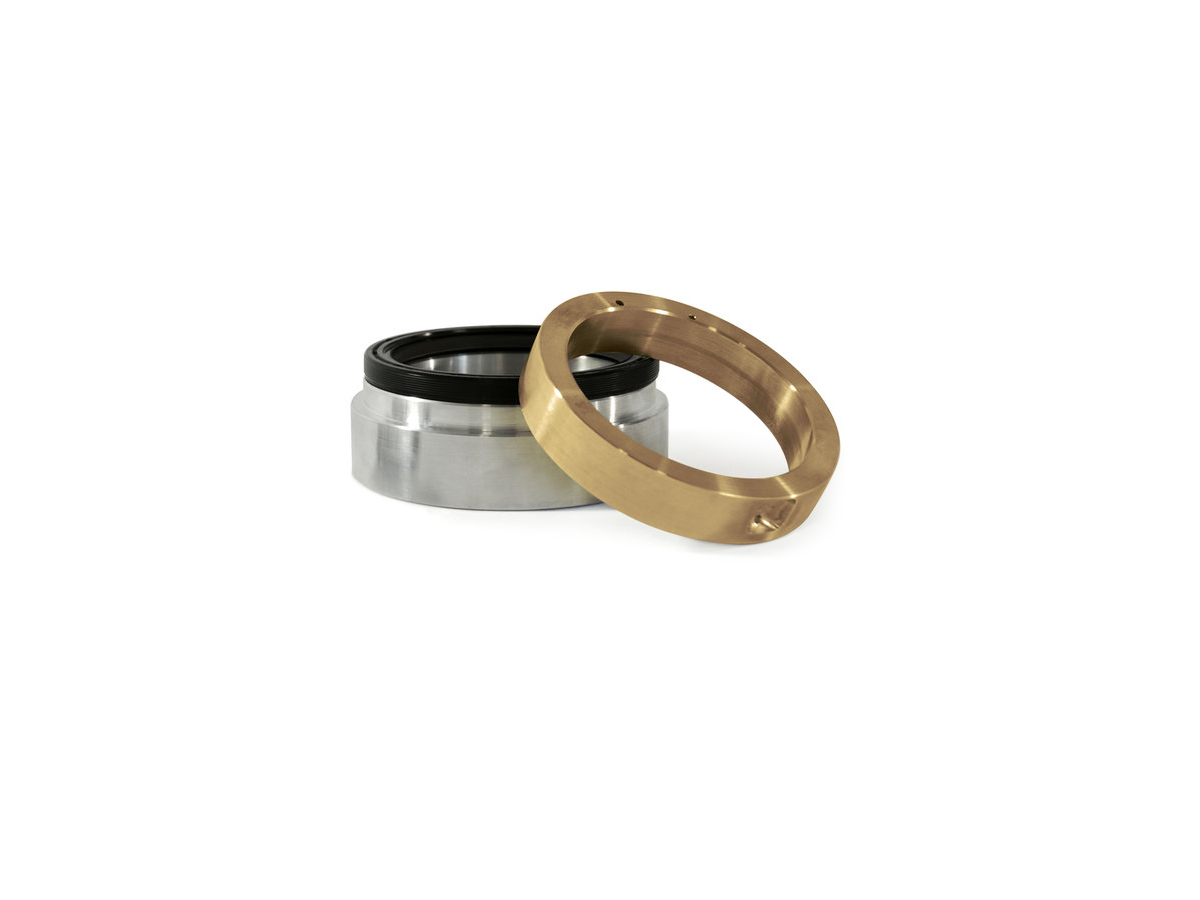
ADDITIONAL REAR MAIN NO. 8 BEARING SEAL AND HOUSING. PORSCHE 986 BOXSTER / 996 – 996986REAREPS
Backed by a full 5-year warranty and including an oil feed modification kit, as a closed engine project it requires the same boring kit as the traditional bearing replacement. There’s an open engine version, too.
What does it cost?
There are too many variables associated with work this complex to suggest a definitive figure. That said, adding the cost of associated parts, and labour to the purchase cost of the EPS bearing itself will be around the £1500 mark. By contrast, a full rebuild can be up to £10,000.
What’s next?
Well, that’s up to you. If you have the M96 – or certain M97 models – and you haven’t had the bearing changed, this problem is in the post if not already knocking at the door. You have the information and there’s plenty of help available. We have all the parts mentioned in this post.
See for yourself!
This helpful Insta post from Friends Green Porsche walks you through the process, and if you’re minded to do it yourself, too help yourself to this installation guide. You’ll need it to install the rear main oil seal, clutch kit, and of course the eternal fix upgrade itself.
If you prefer to delegate the work to a pro, we suggest our partners at Porschexperts.


